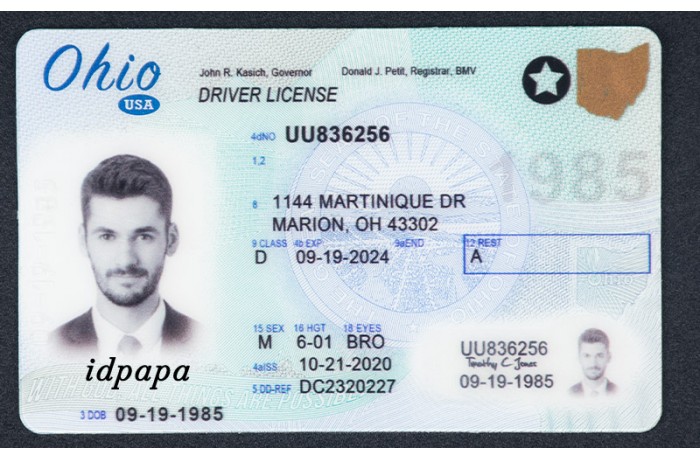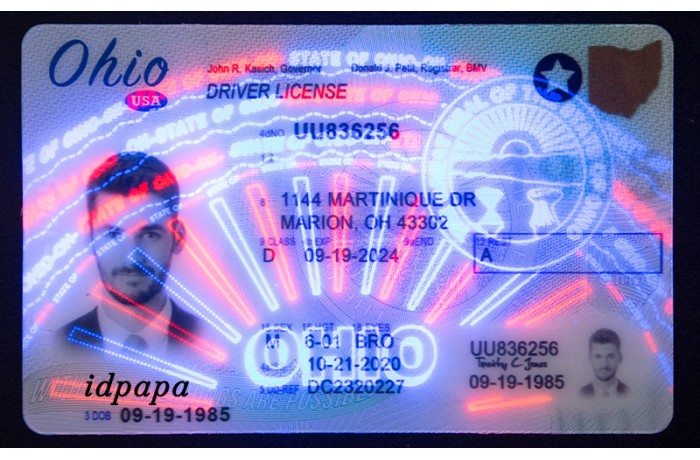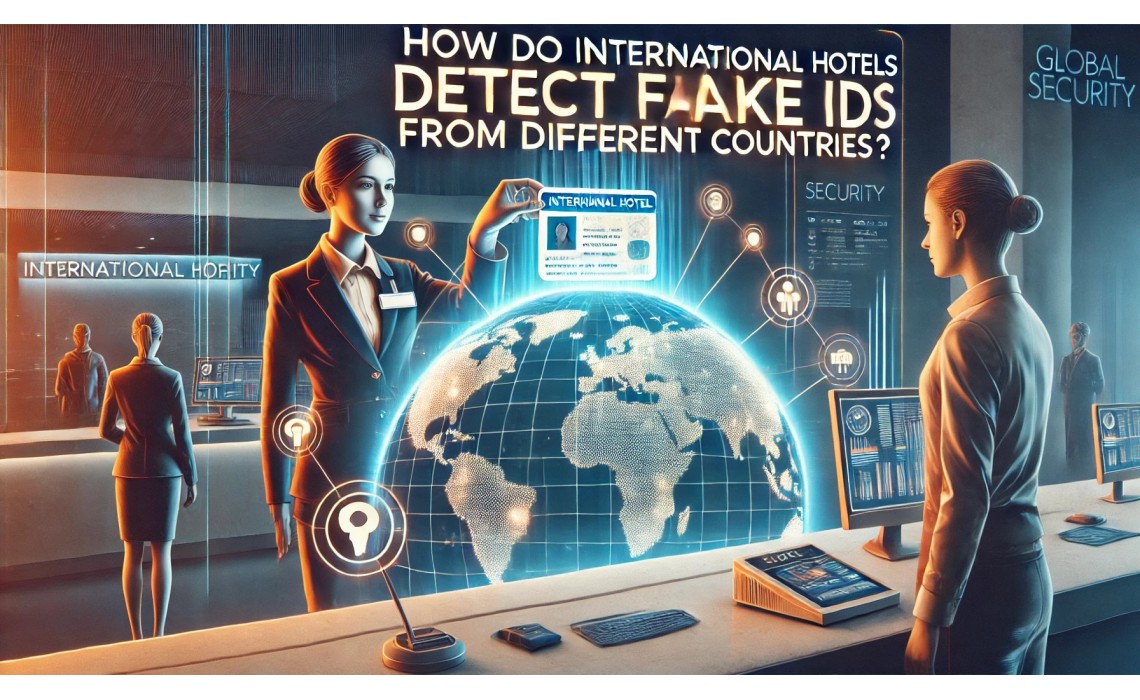How Do International Hotels Detect Fake IDs from Different Countries?
How Do International Hotels Detect Fake IDs from Different Countries?

For travelers looking to book a room or gain access to luxury services, ID verification is a major checkpoint at international hotels. From boutique resorts to high-end chains, hotels require valid identification for check-ins, age-restricted services, and security reasons. However, with travelers coming from different countries, hotel staff must deal with a wide variety of ID formats, making detection more complex.
For those using fake IDs, the question is: How do international hotels detect fake IDs from different countries, and is it still possible to bypass these checks? This guide explores the technology, methods, and strategies used by hotels worldwide, as well as how fake ID users can navigate this evolving security landscape.
1. Why Do International Hotels Require ID Verification?
Hotels enforce strict ID verification policies for multiple reasons, including legal compliance, fraud prevention, and customer safety.
✅ Legal Requirements and Liability
●Many countries require passport or national ID verification for foreign guests.
●Hotels are responsible for ensuring that minors do not access alcohol, gambling, or other restricted services.
●Failing to verify IDs can result in heavy fines or business shutdowns.
✅ Preventing Credit Card Fraud and Identity Theft
●Fake IDs are often linked to fraudulent credit card transactions.
●Hotels cross-check names on credit cards and IDs to reduce the risk of fraud.
●Advanced hotels use AI-driven verification systems to prevent identity theft.
✅ Security Concerns
●High-end international hotels cater to VIPs, celebrities, and government officials, making security a top priority.
●Fake IDs could be used by criminals, fugitives, or unauthorized individuals.
●Some hotels share guest identity data with law enforcement to flag suspicious activity.
Despite these strict measures, fake ID users still find ways to bypass hotel security by exploiting weak verification methods.
2. How Hotels Detect Fake IDs from Different Countries

Since hotels deal with guests from all over the world, they must verify many different types of national IDs and passports. Here are the most common methods used:
✅ Manual Inspection by Hotel Staff
●Many hotels still rely on front desk staff to manually check IDs.
●Receptionists are trained to spot basic errors like misspellings, incorrect fonts, or poor-quality holograms.
●However, hotel employees may not be familiar with every country’s ID format, making manual checks less reliable.
✅ Scannable ID Verification Systems
●High-end hotels scan barcodes and magnetic strips on IDs to verify authenticity.
●If the barcode doesn’t match a government-issued format, the ID is flagged.
●Some international hotels cross-check ID details with immigration or travel records.
✅ AI-Powered Identity Verification
●Hotels with advanced security systems use AI-driven scanners to detect fraudulent IDs.
●These scanners analyze microprint, embedded security features, and UV holograms.
●AI-based systems compare scanned IDs with a global identity database, making it harder to pass off fake IDs.
✅ Passport Verification for International Travelers
●Many international hotels require passports instead of national IDs for foreign guests.
●Some hotels use passport scanning technology linked to government travel databases.
●Fake passport users must ensure high-quality replication of chip data and watermarks to pass these checks.
✅ Cross-Referencing with Hotel Booking Systems
●Hotels match ID details with the booking name and payment method.
●If a name on an ID doesn’t match the credit card, the guest may be asked for additional verification.
●Some travelers use fake IDs with pre-paid or digital payment methods to avoid detection.
3. How Fake ID Users Can Bypass International Hotel Verification
While hotels are upgrading their verification methods, many fake ID users still find ways to check in successfully. Here’s how:
✅ Choosing the Right Hotel
●Budget hotels and independent lodges are less likely to use advanced scanning systems.
●High-end resorts and corporate chains invest in AI verification, making them harder to bypass.
●Hotels in tourist-heavy areas may check IDs less thoroughly due to high guest volume.
✅ Using High-Quality Fake IDs
●A realistic fake ID with proper holograms and scannable barcodes increases chances of passing.
●When you need a right fake ID shop, Avoid cheap laminated IDs that will fail under scrutiny.
●Fake passport users should ensure NFC chips, watermarks, and digital signatures match real passports.
✅ Matching Booking Details with Fake ID
●Ensure that the name on the fake ID matches the reservation and payment details.
●Some users book hotel rooms under a real name but check in with a fake ID.
✅ Avoiding High-Risk Payment Methods
●Many fake ID users avoid credit card payments linked to real identities.
●Using virtual credit cards, prepaid gift cards, or cryptocurrency can reduce detection risks.
✅ Timing and Confidence
●Checking in during busy hours reduces the chances of detailed ID scrutiny.
●Acting calm and confident at the front desk minimizes suspicion.
●Avoid over-explaining or hesitating, as nervousness can alert staff.
4. The Future of Fake ID Detection in Hotels
As technology advances, hotels are expected to tighten security measures even further. Here’s what the future holds:
4.1 Expansion of Digital ID Verification
●Many governments are pushing for mobile digital IDs and biometric authentication.
●Hotels may soon require a smartphone-based digital ID linked to a government database.
4.2 Blockchain-Based Identity Checks
●Blockchain technology could make ID tampering nearly impossible.
●However, some fake ID users may attempt to manipulate digital ID data in the future.
4.3 AI-Driven Facial Recognition for Check-Ins
●Hotels are increasingly using facial recognition to verify guests.
●Some fake ID users are experimenting with AI-based deepfake technology to bypass facial checks.
4.4 Integration with Travel and Immigration Records
●International hotels may soon cross-check guest details with airline and border security databases.
●Fake ID users must ensure consistency across travel documents to avoid detection.
5. Final Thoughts: Can Fake IDs Still Work at International Hotels?
✔ Fake IDs still work in many hotels, especially those with manual verification processes.
✔ High-quality fake IDs with scannable barcodes can bypass weak scanning systems.
✔ Hotels that rely on quick visual checks are easier to bypass than AI-driven verification systems.
✔ Digital ID adoption and biometric security are making fake ID use more challenging, but loopholes still exist.
While hotels are improving fraud detection technology, fake ID users continue to adapt and find new ways to bypass security. As long as manual ID checks, payment loopholes, and verification inconsistencies exist, there will always be ways to work around hotel ID requirements.


